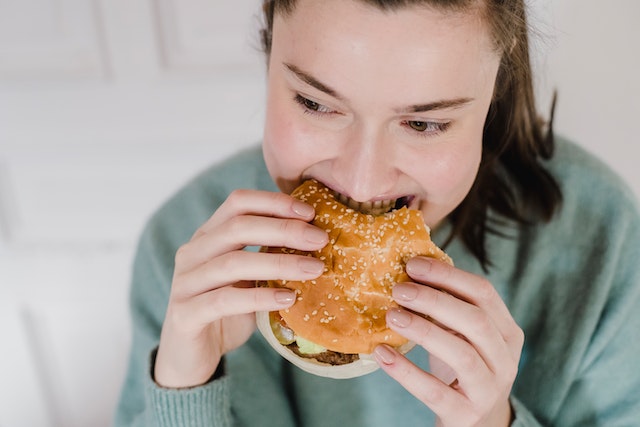- 13 December 2023
- 361
After the Burn: 9 Intelligent Ways to Avoid Overeating Following a Workout

Introduction:
The euphoria of a completed workout can sometimes be followed by the temptation to indulge in a hearty meal, potentially undermining the efforts put into burning calories. Post-exercise nutrition is crucial, but overeating can counteract the benefits of your workout. In this comprehensive guide, we’ll explore 9 intelligent ways to avoid overeating after a workout. By adopting mindful practices and making informed nutritional choices, you can optimize recovery and stay on track with your fitness goals.
1. Stay Hydrated:
Dehydration can often be mistaken for hunger, leading to unnecessary calorie consumption. As you sweat during your workout, it’s vital to replenish lost fluids. Make a habit of drinking water throughout your exercise routine and continue to hydrate post-workout. Staying well-hydrated not only supports recovery but also helps control appetite, preventing overeating.
2. Plan Your Post-Workout Meal:
Spontaneous decisions in the post-workout period can lead to overeating. Combat this by planning your post-workout meal in advance. Ensure your meal includes a balance of carbohydrates, protein, and healthy fats. A structured meal plan helps avoid impulsive choices and provides your body with the nutrients it needs for optimal recovery.

3. Choose Nutrient-Dense Foods:
Opt for nutrient-dense foods that deliver essential vitamins and minerals without unnecessary calories. Include lean proteins, whole grains, fruits, and vegetables in your post-workout meal. These choices not only aid in recovery but also contribute to overall health. Nutrient-dense foods provide sustained energy and prevent the pitfalls of empty-calorie overconsumption.
4. Listen to Your Body:
Mindful eating involves tuning in to your body’s hunger and fullness signals. Post-workout, pay attention to what your body is telling you. Eat when you’re hungry, and stop when you’re satisfied. This simple yet powerful practice fosters a healthy relationship with food and prevents overeating.
5. Avoid Reward-Based Eating:
While it’s tempting to reward yourself with a treat after a challenging workout, using food as a reward can lead to overindulgence. Shift your mindset away from reward-based eating and explore alternative ways to celebrate your accomplishments. Treat yourself to a favorite non-food-related activity or enjoy a post-workout pampering routine.
6. Implement Portion Control:
Portion control is a practical strategy to prevent overeating. Use smaller plates or containers, and be mindful of serving sizes. By controlling portions, you can enjoy a satisfying post-workout meal without exceeding your caloric needs. This approach aligns with your fitness goals and promotes a balanced nutritional intake.
7. Incorporate Protein-Rich Snacks:
If you prefer smaller, more frequent meals, consider incorporating protein-rich snacks into your post-workout routine. Greek yogurt, a protein smoothie, or a handful of nuts can provide a satisfying and nutritionally balanced option without the risk of excess calorie consumption. Protein-rich snacks support muscle recovery and help keep you satiated.
8. Slow Down Your Eating:
Eating too quickly can undermine your body’s ability to signal fullness, leading to overeating. Practice mindful eating by slowing down the pace of your meals. Chew your food thoroughly, savor each bite, and give your body the opportunity to register satiety. This simple shift in eating speed can significantly impact your post-workout consumption.
9. Be Wary of Liquid Calories:
While hydration is essential, be cautious of liquid calories, especially in the form of sugary sports drinks or high-calorie smoothies. Opt for water or low-calorie beverages to support hydration without adding unnecessary calories to your post-workout intake. Being mindful of liquid calories ensures that you’re not unknowingly overshooting your daily caloric goals.
Conclusion:
Maximizing the benefits of your workout involves more than just the exercises you perform; it extends to how you nourish your body afterward. By incorporating these 9 intelligent ways to avoid overeating after a workout, you can support your fitness goals and overall well-being. Stay attuned to your body’s signals, plan your post-workout meals, and choose nutrient-dense foods to create a balanced and effective post-exercise nutrition routine.
Post-workout overeating is a common pitfall, but with mindful practices, you can navigate this period with confidence. Strive for a holistic approach to your fitness journey, where exercise and nutrition work in harmony to promote your overall health. Remember, the goal is not just a great workout but a sustainable lifestyle that aligns with your long-term well-being.

